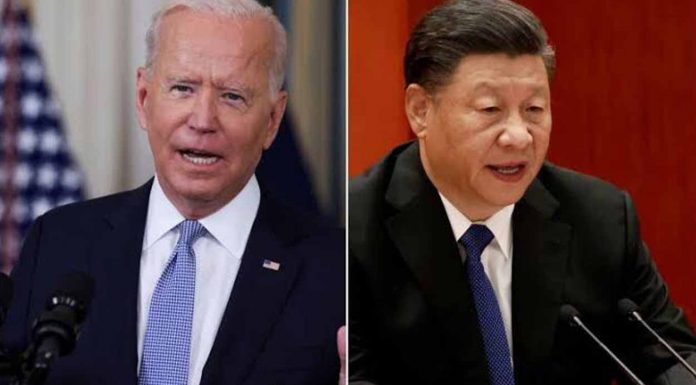Amid growing tensions with the US over trade, Taiwan, and technology, Beijing has prepared a blueprint to replace American and foreign technology, quietly empowering a secretive government-backed organization to vet and approve local suppliers in sensitive areas from cloud to semiconductors.
Formed in 2016 to advise the government, the Information Technology Application Innovation Working Committee has now been entrusted by Beijing to help set industry standards and train personnel to operate trusted software.
The quasi-government body will devise and execute the so-called “IT Application Innovation” plan, better known as Xinchuang in Chinese. It will choose from a basket of suppliers vetted under the plan to provide technology for sensitive sectors from banking to data centers storing government data, a market that could be worth $125 billion by 2025.
So far, 1,800 Chinese suppliers of PCs, chips, networking, and software have been invited to join the committee. The organization has so far certified hundreds of local companies this year as committee members, the fastest pace in years, one of the people said.
The existence of the Xinchuang white-list, whose members and overarching goals haven't been previously reported, is likely to inflame tensions just as Presidents Joe Biden and Xi Jinping wrapped up their first face-to-face virtual summit.
The new move gives Beijing more leverage to replace foreign tech firms in sensitive sectors and quickens a push to help local champions achieve tech self-sufficiency and overcome sanctions first imposed by the Trump administration in fields like networking and chips.
“China is trying to develop homegrown technologies,” said Dan Wang, technology analyst at Gavekal Dragonomics. “This effort is more serious now that many more domestic firms now share that political goal since no one can be sure that US technologies can avoid US export controls.”
The push to replace foreign suppliers is part of a broader effort by Beijing to exert control over its sprawling technology industry, including over data security. Already, the government has forced overseas cloud providers such as Amazon Web Services and Microsoft Corp. to set up joint ventures to operate on the mainland. Apple Inc. has also yielded its user data storage business to a government-backed operator in Guizhou.
The grip is set to tighten, as the tech industry ministry gains more oversight of industrial and telecom data and proposes new rules that will require crucial data to be stored inside the country.
While few details have been revealed about the Xinchuang committee or its members, any companies that are more than 25% foreign-owned will be excluded from the panel, shutting out overseas suppliers including Intel Corp. and Microsoft.
Chinese tech startups that are primarily funded by foreign investment will also face a higher bar, though Alibaba Group Holding Ltd. and Tencent Holdings Ltd., the country's two largest providers of cloud services, have managed to circumvent those rules by applying for membership through locally incorporated subsidiaries, the people said.
“U.S. choke-hold policies, exemplified by the Entity List, were the direct catalyst that pushed China to build the Xinchuang sector,” Shanghai-based research firm iResearch said in a report in July. “The blacklisting underlined the urgency for China to invest more in technology innovation and have the key technologies made in China.”
Membership on the panel could give local suppliers a key advantage in having their technology approved under the Xinchuang plan, thus unlocking a billion-dollar market. Xinchuang-related business generated 162 billion yuan ($25 billion) in sales last year and is on track to reach nearly 800 billion yuan by 2025, according to a report co-authored by the China Software Industry Association.











